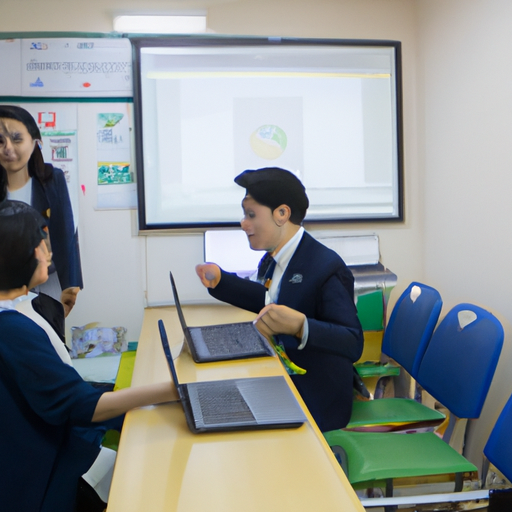728x90

20 Things Vietnamese Do Most in Korea
- Study: Many Vietnamese students choose Korea as their study destination, pursuing various courses ranging from language programs to bachelor's, master's, and doctoral degrees.
- Teach Vietnamese: Some Vietnamese individuals work as Vietnamese language instructors, teaching fellow Vietnamese residents, Korean learners, or serving as language consultants for businesses.
- Work in Manufacturing: Vietnamese workers contribute to Korea's manufacturing sector, particularly in industries such as electronics, automobiles, textiles, and machinery. They often work in factories and production lines.
- Seamstresses: Vietnamese women are known for their skills in sewing, garment making, and alteration. They work in clothing factories or as seamstresses for local businesses.
- Agriculture and Farming: Vietnamese individuals sometimes work in Korea's agricultural sector, assisting in farms, managing crops, or engaging in livestock-related activities.
- Restaurant and Food Industry: Vietnamese immigrants have established their own restaurants, specializing in authentic Vietnamese cuisine or Asian fusion dishes. They work as chefs, servers, or operate their establishments.
- Beauty Industry: Vietnamese individuals, especially women, often work in Korea's booming beauty industry. They may be employed as hairstylists, makeup artists, or provide nail and skincare services.
- Construction: Vietnamese workers contribute to the construction industry in Korea, providing labor and expertise in various construction projects such as buildings, roads, and infrastructure development.
- Technology and IT: Some Vietnamese professionals find opportunities in Korea's technology and IT sector. They work in software development, programming, data analysis, or IT support roles.
- Sales and Marketing: Vietnamese employees also work in sales and marketing positions, promoting products or services for Korean companies or managing sales channels.
- Tourism and Hospitality: Vietnamese individuals are involved in Korea's tourism and hospitality industry, working as tour guides, hotel staff, or in travel agencies catering to Vietnamese tourists.
- Language and Culture Exchange: Vietnamese individuals often participate in language and cultural exchange programs, working as language partners or cultural ambassadors to enhance the understanding between Vietnam and Korea.
- Healthcare Services: Vietnamese individuals, such as nurses or care workers, contribute to Korea's healthcare sector. They provide medical assistance and care for patients in hospitals, clinics, or home-care settings.
- Transportation Services: Vietnamese immigrants may work as drivers or staff in transportation services, including taxis, buses, or logistics companies.
- Art and Entertainment: Some Vietnamese individuals pursue careers in the Korean entertainment industry, working as singers, actors, dancers, or models.
- Engineering and Design: Vietnamese professionals with engineering or design backgrounds may find employment in Korea's engineering firms, architectural companies, or design studios.
- Translation and Interpretation: Vietnamese individuals proficient in both Vietnamese and Korean languages can work as translators or interpreters, facilitating communication between Vietnamese and Korean speakers.
- Administration and Office Work: Vietnamese employees may work in administrative roles within various industries, assisting with paperwork, customer service, or managing office tasks.
- Research and Development: Vietnamese researchers and scientists contribute to Korea's research and development sector, working in laboratories, universities, or research institutions.
- Entrepreneurship: Some Vietnamese residents in Korea establish their own businesses, ranging from small retail stores to online ventures, contributing to the local economy.
Conditions for Working
The conditions to work in Korea depend on the specific job and the individual's circumstances. However, there are some common requirements and conditions for working in Korea:
- Work Permit: Non-Korean citizens need to obtain a valid work permit to legally work in Korea. The specific type of visa or permit required varies depending on the job and the length of stay.
- Employer Sponsorship: In most cases, individuals need a job offer from a Korean employer who can sponsor their work visa and assist with the necessary paperwork.
- Language Proficiency: Some jobs may require a certain level of proficiency in the Korean language, especially those involving direct customer interaction or positions in Korean companies.
- Education and Qualifications: Certain positions may require specific educational qualifications, certifications, or relevant work experience. For example, teaching positions often require a bachelor's degree and a teaching qualification.
- Health Checks: Individuals may need to undergo health checks to ensure they meet the health standards required for employment in Korea.
- Contract and Employment Terms: Employment contracts specify details such as working hours, wages, benefits, and other terms and conditions. It is essential to review and understand the employment contract before starting work.
- Legal Compliance: Workers must abide by Korea's labor laws and regulations, which include provisions for working hours, minimum wage, employee rights, and workplace safety.
Note: The specific requirements and conditions can vary depending on the type of work, visa category, and individual circumstances. It is advisable to consult with the Korean embassy or consulate in Vietnam or seek professional advice for accurate and up-to-date information.
"이 포스팅은 쿠팡 파트너스 활동의 일환으로, 이에 따른 일정액의 수수료를 제공받습니다."
#쿠팡 #쿠팡파트너스 #창업 #부업 #수출 #광고 #마케팅 #중국 #베트남 #일본 #프랑스 #태국 #인도네시아 #한국창업 #korea #businessinkorea
반응형





